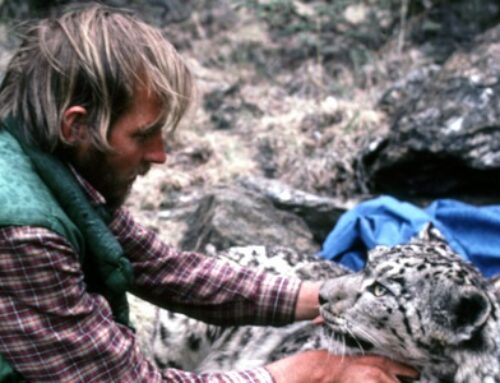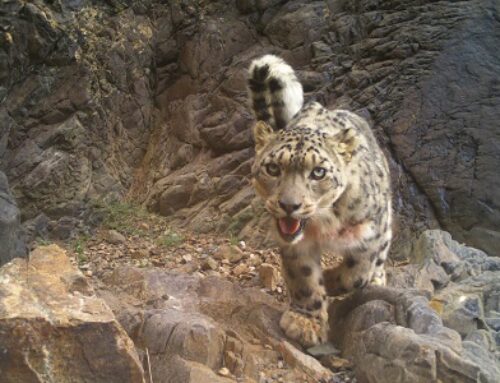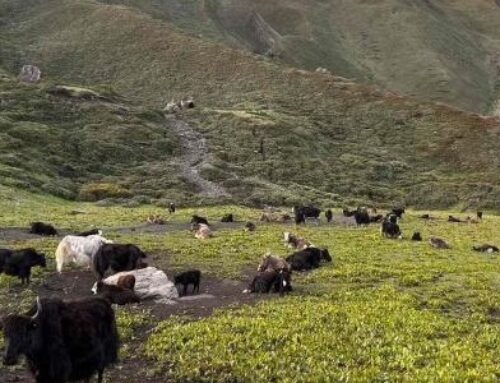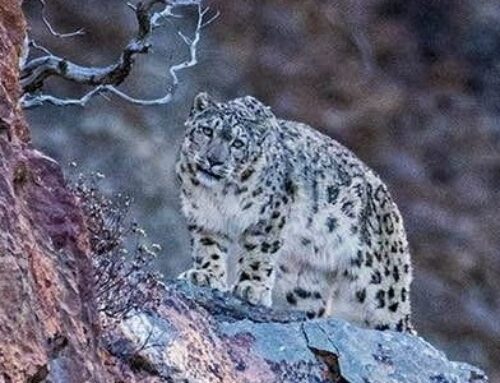Charlotte Hacker, a PhD candidate at Duquesne University, is currently based in China working with the Snow Leopard Conservancy, the Chinese Academy of Forestry, and other in-country partners to better understand the snow leopard’s diet, including documenting its dependence on livestock. She is also working to find appropriate solutions for human-wildlife conflict.
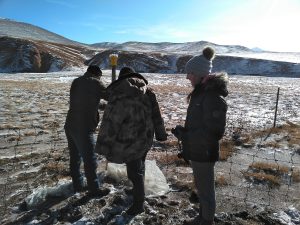
Photo: Li Ye
“Losing livestock to large carnivores such as the snow leopard causes financial burdens for herders and their families. Such loss encourages retaliatory killings, promotes negative attitudes towards predators, and creates tension between area residents and the government/conservation agencies seeking to preserve at-risk wildlife.”
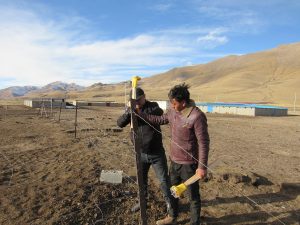
Photo: Charlotte Hacker
“We’re currently testing Foxlights, a deterrent tool that uses irregular colored flashing lights to keep carnivores away from livestock pens and corrals. Our study involves testing the efficacy of Foxlights by working with local herders to install and implement them on the Tibetan Plateau of China over a four-month period. Rigorous assessments of deterrent methods are vital to shaping human-wildlife conflict mitigation strategies that both work to conserve snow leopards and protect herder livelihoods.”
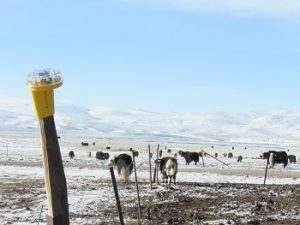
Photo: Charlotte Hacker

